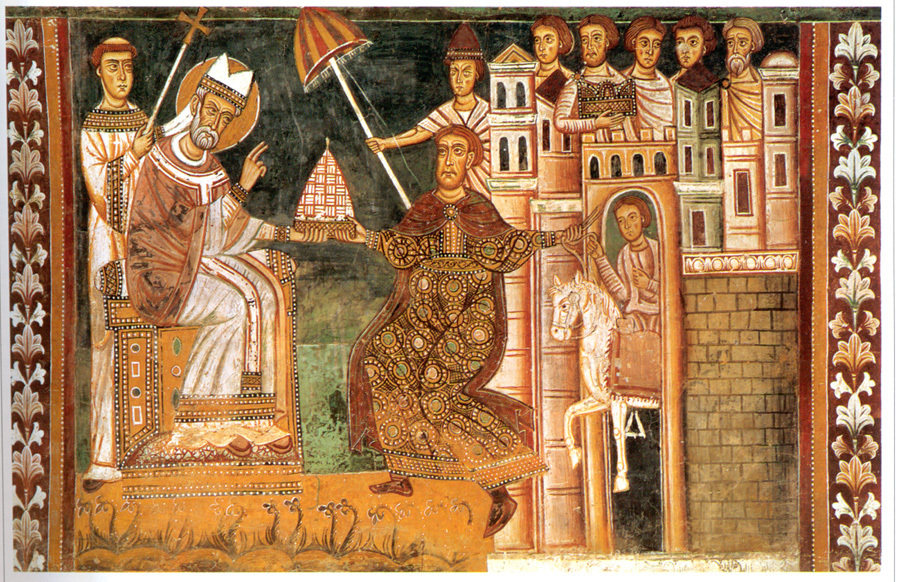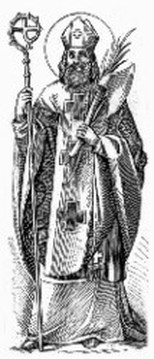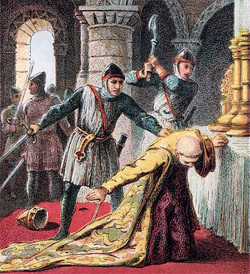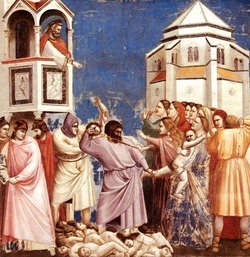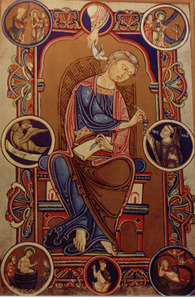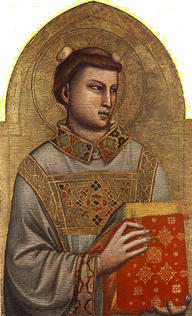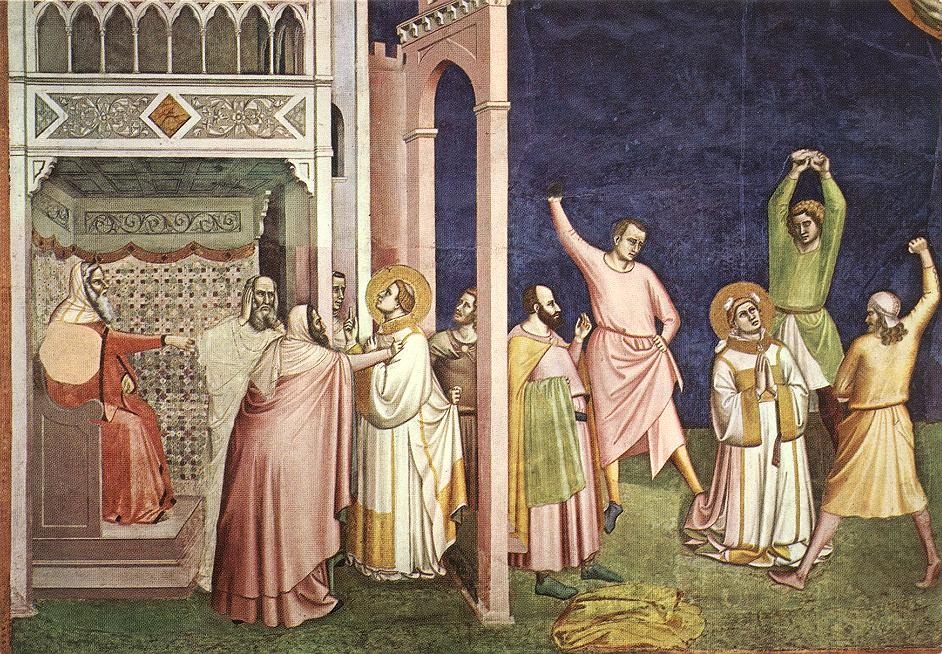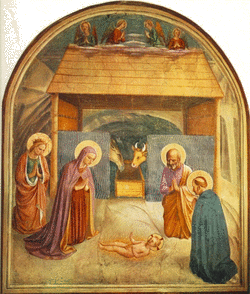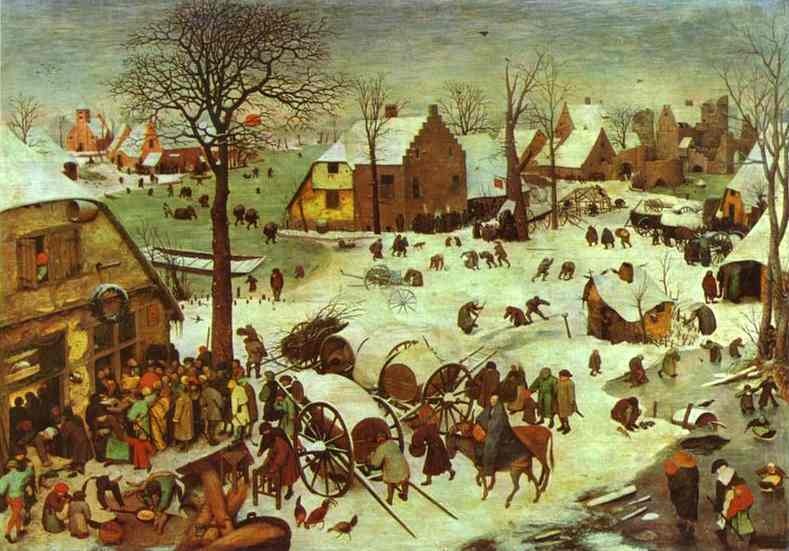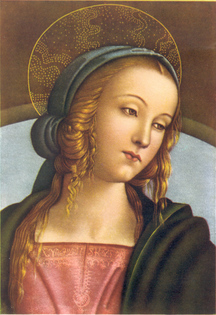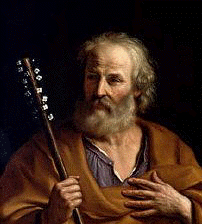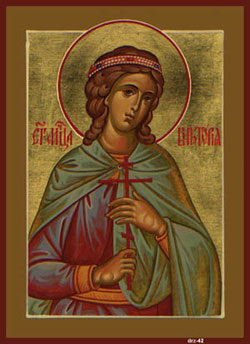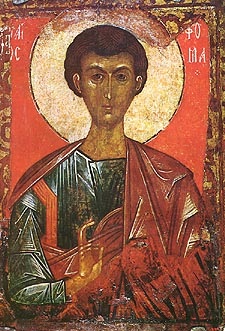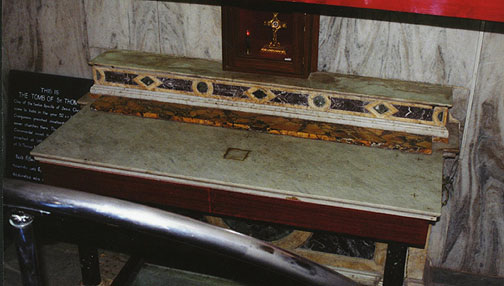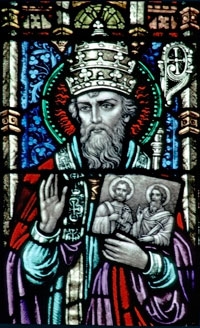
The godly Emperor had already granted to Christ's faithful people permission to build public churches, and by the advice of Sylvester he himself set them the example. He built many Basilicas, and magnificently adorned them with holy images, and gifted them with gifts and endowments. Among these there were, besides others, the Church of Christ the Saviour, hard by the Lateran Palace; that of St. Peter, upon the Vatican Mount; that of St. Paul, upon the Ostian Way; that of St. Lawrence in Agro Verano; that of the Holy Cross in Atro Sessoriano; that of St. Peter and St. Marcellinus, upon the Labican Way; and that of St. Agnes, upon the Nomentan Way. Under this Pope was held the first Council of Nice, presided over by the Papal Legates, and in the Presence of Constantine, and three hundred and eighteen Bishops, where the holy and Catholick Faith was declared, and Arius and his followers condemned; which Council was finally confirmed by the Pope, at the request of all the assembled Fathers, in a synod held at Rome, where Arius was again condemned. This Pope issued many useful ordinances for the Church of God. He reserved to Bishops the right of consecrating the Holy Chrism; ordered Priests to anoint with Chrism the heads of the newly baptized; settled the offíciating dress of Deacons as a dalmatic and linen maniple; and forbade the consecration of the Sacrament of the Altar on anything but a linen corporal.
This Sylvester is likewise said to have ordained that all persons taking Holy Orders should remain a while in each grade before being promoted to a higher; that laymen should not go to law against the clergy; and that the clergy themselves were not to plead before civil tribunals. He decreed that the first and seventh days of the week should be called respectively the Lord's Day and the Sabbath, and the others, Second Day, Third Day, and so on. In this he confirmed the use of the word Feria for the weekdays, the which use had already begun in the Church. This word signifieth an holiday, and pointeth to the duty of the clergy ever to lay aside all worldly labour, and leave themselves free to do continually the work of the Lord. The heavenly wisdom with which he ruled the Church of God, was joined in him to a singular holiness of life, and an inexhaustible tenderness towards the poor; in which matter he ordained that the wealthy clergy should each relieve a certain number of needy persons; and he also made arrangements for supplying the consecrated virgins with the necessaries of life. He lived as Pope twenty-one years, ten months and one day, and was buried in the cemetery of Priscilla on the Salarian Way. He held seven ordinations in the month of December, and made forty-two priests, twenty-five deacons, and sixty-five bishops of various sees.
